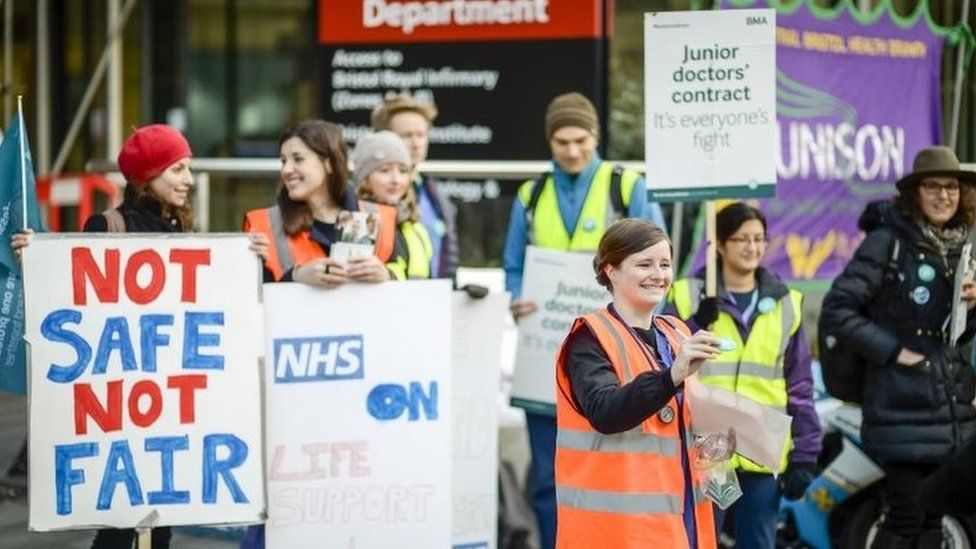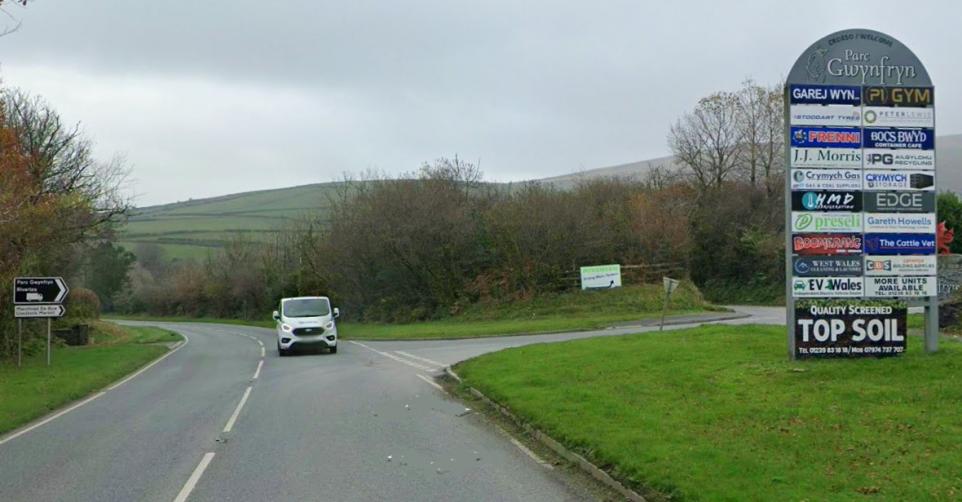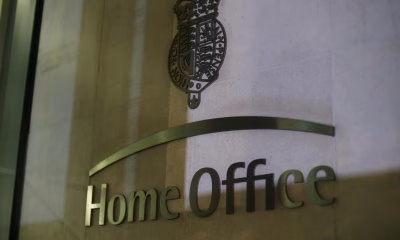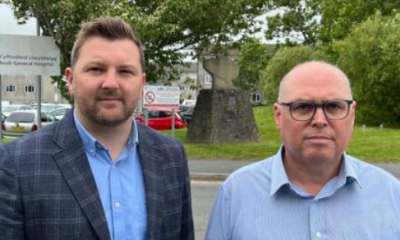Health
BMA Cymru Wales to put pay offer to doctors in pay dispute

DOCTORS’ union the BMA has secured pay offers for doctors working in secondary care in Wales following pay talks with the Welsh Government.
Members of BMA Cymru Wales including Junior doctors, SAS doctors and Consultants will now vote on whether to accept the three separate offers.
Junior doctors have been offered a 7.4% additional uplift taking the total to a 12.4% uplift for the 23/24 financial year and will be back dated to April 2023.
A revised consultant pay scale is proposed, which provides higher career earnings, significantly better starting pay, and an additional pay rise of up to 10.1% for some consultant doctors.
For SAS doctors, pay offers for newer contracts include increases of 6.1-9.2%, as well as an additional uplift for associate specialists, senior doctors who are on closed contracts.
The offers, which also include non-pay elements and reform of pay scales and contract terms,* are the result of weeks of pay negotiations which began in April this year after sustained pressure from BMA Cymru Wales including 10 days of strike action by junior doctors and planned industrial action by senior doctors which were suspended last month to start the talks.
From Wednesday 12 June to 26 June members will vote on whether to accept the offers.
Dr Oba Babs Osibodu and Dr Peter Fahey co-chairs of the BMA’s Welsh Junior Doctors Committee said: “We entered pay negotiations in good faith to reach a deal that will put us on the path to achieving full pay restoration to address the years of erosion to our pay We’re satisfied that this offer delivers on our ambition. This offer puts us well on the path to pay restoration.
“We are therefore encouraging members to vote to accept this deal. It is a testament to the resolve they have shown in taking part in industrial action to achieve a better future for the profession
Dr Stephen Kelly, chair of BMA Cymru Wales’ Consultants committee said: “We are pleased to have been able to reach an offer that we believe honours our overwhelming strike mandate and offers significant improvements in pay for consultants across their careers.
“The offer is recognition of the hard work and dedication of senior doctors and signifies a commitment to attracting and retaining doctors in Wales by offering a fairer more competitive value for their service.
“Whilst ultimately it will be up for members to decide, we believe the offer is a big step in the right direction for the profession and so we are recommending that members accept it. We will continue to work hard to improve your pay and working conditions, and we understand this is just the first step.”
Dr Ali Nazir, chair of BMA Cymru Wales’ SAS doctor committee said: “We are pleased to be able to bring an offer worthy of the hard work and dedication shown by SAS doctors in Wales. We know voting to take industrial action was a very difficult decision for our members but in voting to strike they were choosing to stand up for themselves and their colleagues.
“By taking part and getting us here they have played a part in securing a better future for SAS doctors in Wales. We are encouraging members to vote to accept this offer.”
In August last year the BMA’s committees representing all secondary care doctors in Wales voted to enter a trade dispute with the Welsh Government after being offered another below inflation pay uplift of just 5% for the 23/24 financial year.
The RCN in wales has responded. Helen Whyley, Executive Director of Royal College of Nursing Wales said: “All NHS workers deserve a proper pay rise, but nursing staff are still waiting at the back of the queue. They feel let down and misled by this government.”
“The repeated firm position from the Welsh government that there was no money in the pot for NHS nursing staff salaries was either untrue or demonstrates that they can’t
manage their finances. Either way it shows a total disregard to principle of equity of approach to NHS negotiations.”
“Actions speak louder than words. This announcement comes only
days after the First Minister opened our annual RCN Congress on home soil in Newport, speaking of his unwavering support for nursing staff. It shows his government support is merely hot air and no real commitment. His government have failed to fulfil the promises
made to nurses in last year’s pay award and now they add insult to that injury by substantially increasing only the doctors’ pay award for 2023/24.”
“Congress saw the RCN launch its general election manifesto, with the leading priority being a substantial pay rise for all nursing staff. The nursing workforce highlighted
inadequate staffing levels, treating patients in corridors, limited or no access to continuing professional development and the increased demands of delivering patient care. All of these pressures lead to severe moral distress, leading to an increase in nursing
staff so overwhelmed with pressure from work that they even considered taking their own lives. This is unacceptable.
“All health care staff deserve to be paid fairly and be recognised for the safety critical work that they do. Our members will be deeply discouraged to hear that their
sacrifices and unrelenting efforts during the RCN Wales pay campaign in Wales has been cast aside by Welsh government.
“We will be urgently raising this with the Cabinet Secretary for Health and Social Care and the First Minister urging them to address fair pay for nursing now.”
Eluned Morgan MS, Cabinet Secretary for Health and Social Care said on Friday (Jun 6): “We have today made a formal pay award offer to each of the three BMA branches of practices – junior doctors, SAS doctors and consultants – for 2023-24, following successful negotiations over the last two months.
“We would like to thank members of the BMA’s negotiating teams and NHS Employers for the constructive nature of the talks, which have enabled us to make these formal offers, which will now be put to the BMA membership for consideration. Each of the three BMA elected representative committees are recommending members accept the offers.
“While strike action has been paused during negotiations, if these offers are accepted, it will end this dispute and industrial action, meaning doctors will return to work in Wales for the benefit of patients and NHS services.
“The negotiations have been robust and while the aim was to end the 2023-24 dispute and prevent further disruptive strike action, these offers also ensure the additional investment in doctors’ pay is balanced against commitments towards operational reforms, which seek to address productivity and efficiency and achieving future contract reform. These pay awards, if accepted, will also help to address inequalities in the senior NHS medical workforce.
“These offers are at the limit of our affordability. We have been open and transparent about our financial constraints with our social partners during negotiations.”
The Welsh Government confirmed that for Junior Doctors, the offer consists of a 12.4% pay uplift, backdated to 1 April 2023. This includes the 5% pay lift for 2023-24, which has already been paid. If agreed, this offer is outside of the Doctor and Dentists Review Body (DDRB) recommendation for 2023-24. This offer is in line with the pay award accepted by junior doctors in Scotland.
It was confirmed that all parties will commit to re-entering contract negotiations as soon as practicable once a new BMA junior doctors committee is elected this year with the ambition of reaching an agreement that, subject to approval by BMA members, would begin implementation in 2025-26. The contract negotiations will build on the contract rejected in 2022, while recognising that significant changes will be required.
The Welsh Government and the BMA Welsh consultant committee have agreed the time is right to reform the current pay structure, which is more than 20 years old. A modern pay structure will better support recruitment and retention, better reward performance, address the gender pay gap, and support progression through the career of consultants in Wales. The new pay structure will be backdated to 1 January 2024. If this offer is agreed, it will be outside the DDRB recommendation for 2023-24.
The BMA rate card will be withdrawn if the offer is accepted with immediate effect at both local and national levels in Wales.
All parties have agreed to an all-Wales job planning policy being developed and implemented during 2024-25 along with an NHS Wales recruitment template for newly-recruited consultants in Wales.
It has also been agreed that scoping work will be undertaken during 2024-25 in preparation for contract reform talks. Any reformed contract will need to be fully modernised against current and future requirements of the NHS Wales for the benefit of patients and the wellbeing of consultants.
In 2021, a new specialty doctor contract was agreed in social partnership and implemented as part of a multi-year pay deal. This offer addresses the unintended imbalances in the pay scale for doctors on the 2021 contract and the 2008 contract to ensure consistency and fairness across the specialty doctor workforce.
This investment will encourage more doctors to take up the new contracts, which offer modernised terms and conditions to ensure that doctors and patients benefit from the reformed contract and working conditions.
In 2021, a new specialist doctor contract was agreed in social partnership and implemented as part of a multi-year pay deal. This offer addresses the unintended imbalances between the specialty doctor and specialist pay scales to ensure a career progression pathway is maintained across the workforce. It will resolve the current issue that exists where the top pay point of the 2008 specialty doctor pay scale is higher than the starting salary for the specialist grade.
The Welsh Government says it has listened to the BMA Welsh SAS committee and while recognising this is a closed grade, recognises the rationale for associate specialists to receiving comparable levels of pay against the consultant pay scale, given the skills and experience of associate specialists working on consultant rotas.
A spokesperson said: “The offer includes uplifting the 2022-23 pay scales by a further 4%, making a total of 9% for 2023-24 backdated to 1 January 2024 for associate specialists.
“The BMA rate card will be withdrawn if the offer is accepted with immediate effect at both local and national levels in Wales.
“Full details of each pay offer will be communicated through BMA Wales to their members.
“We would like to take this opportunity to encourage doctors who have any questions about the offer to speak to their BMA representatives as this is a fair offer to address the pay dispute.
“We look forward to working in social partnership with all NHS and health trade unions to discuss the 2024-25 pay award.”
Health
Accidental poisoning deaths surge in Wales as elderly face growing risk

Nearly 200% rise in five years raises alarm among safety experts
ACCIDENTAL poisoning deaths in Wales have surged dramatically, with new safety data showing a sharp increase in fatalities and a growing risk to older people living at home.
Figures released by the Royal Society for the Prevention of Accidents (RoSPA) show 252 people in Wales died from accidental poisoning in 2024, compared with 85 deaths in 2019 – an increase of almost 200 per cent in just five years.
Safety experts say older people are particularly vulnerable. Those aged 65 and over are more than five times more likely to die from an accidental poisoning – excluding narcotics – than the general population.
Even when alcohol-related incidents are excluded, people in this age group remain more than four times as likely to die from accidental poisoning.
Across the UK the trend is also rising sharply. Official figures show 5,770 people died from accidental poisonings in 2024, a 63 per cent increase over the past decade.
Hospitals in England recorded 17,252 admissions linked to non-narcotic poisoning last year, including nearly 5,000 cases involving older adults, who were 55 per cent more likely to require emergency hospital care.
RoSPA warns that people living with dementia face particular dangers inside their own homes because the condition can affect memory, recognition and perception. Everyday household products such as cleaning sprays, laundry detergents and medicines can easily be mistaken for food or drink.
Rebecca Guy, Senior Policy Manager at RoSPA, said: “Families caring for vulnerable relatives can experience genuinely frightening moments. Turning away for just a few seconds and realising someone has swallowed a cleaning product is sadly something some people have experienced.
“These incidents are not freak accidents. They are predictable and preventable events, and our new guidance is designed to help people take simple steps to make their homes safer.”
The charity has released new home-safety guidance aimed at helping families reduce risks, including practical advice on safely storing medicines and household chemicals.
Paul Edwards, Chief Nursing Officer at Dementia UK, said brightly coloured packaging on cleaning products can create confusion for people living with dementia.
“Laundry and cleaning products are often easily accessible in our homes, and many have brightly coloured packaging which can cause confusion for people with dementia, who may mistake them for edible items,” he said.
“One of the challenges of supporting someone with dementia is balancing an individual’s independence with their safety. It is impossible to eliminate risk completely, but these guidelines offer simple steps people can take to reduce the chance of these accidents happening.”
Simon Wheeler, Senior Knowledge Officer at Alzheimer’s Society, said staying safe at home is a key concern for families affected by dementia.
“As dementia progresses, people may find it harder to tell the difference between something that’s safe to eat and something that isn’t,” he said.
“Storing cleaning products safely and out of sight can help reduce the risk of accidents.”
RoSPA is urging households to take simple precautions, including locking away cleaning products, keeping medicines securely stored, and ensuring hazardous substances remain in their original packaging.
Safety experts warn that without greater awareness, accidental poisonings could continue to rise as the population ages and more people live independently at home.
Business
Crymych golf simulator, play space and wellness centre call

A CALL for approval for the use of Crymych industrial units as a golf simulator, child’s play space and a wellness centre offering a sauna, ice baths, and oxygen therapy has been submitted to county planners.
In an application to Pembrokeshire County Council, Mr and Mrs Evans, through agent Preseli Planning Ltd, seek a partly retrospective permission for the erection of commercial building containing three individual business units, at a former vacant storage yard at Parc Gwynfryn, Crymych.
A supporting statement says: “The building provides three sperate business spaces, two of the units are occupied, one as a golf simulator (7B 2) a second is occupied by a child’s role play and play space (7B 4) and the central unit (7B 3) is currently unoccupied, proposed to be let as a wellness centre.”
The site owners and applicants, Mr and Mrs Evans, are also the operators of the golf simulator enterprise and the original developers of the industrial estate, the statement says.
“The aim of the application is to regularise the existing building and existing and proposed uses. The building was substantially complete May 2025 and first occupied June 2025. Unit 7B2 is occupied by a golf simulator whereby users book slots online and self-serve.
“Unit 7B3 is currently unoccupied but would be occupied by wellness centre once planning permission is granted, consisting of sauna, ice baths, cryotherapy room, oxygen therapy etc. Unit 7B4 is occupied by a new enterprise which offers indoor roleplay space for children, Byd Bach.”
It adds: “In terms of the golf simulator, this is owner managed and the sites proximity to their main office within the site makes managing and attending the unit convenient and enables multiple businesses to be managed by the same members of staff.
“In terms of Byd Bach, this is operated by a local couple who also manage other premises in Crymych, amongst other employment. The site’s proximity to Crymych is therefore important and these arrangements are only successful given that the site is well-related to Crymych.
“The offering would not disrupt existing comparable provision, the closest facility of this kind being in St Clears, well beyond the catchment of this facility.
“The third unit is not yet occupied but would be operated by a local spinal injury sufferer, and athlete, who would benefit from the facilities themselves and offer therapy for others.”
Citing a recently-approved change on use of a building on the industrial site itself to a Hair and Beauty Salon, it said it was considered the development would not have a significant detrimental effect on the overall supply of business units or land in Pembrokeshire or Crymych.
The application will be considered by county planners at a later date.
Community
Emergency call to protect Withybush Hospital by local councillors

AN EMERGENCY call for Pembrokeshire’s council to take greater action in safeguarding the future of Withybush hospital is to be heard next week.
At the full council meeting of March 5, an emergency notice of motion by the council’s 11-strong Conservative Party group will demand that the Welsh Government immediately reverses the decision to cease emergency general surgery at Withybush Hospital.
Last year, Hywel Dda University Health Board consulted with its communities on options for change in critical care, dermatology, emergency general surgery, endoscopy, ophthalmology, orthopaedics, stroke, radiology and urology.
It said its Clinical Services Plan focuses on nine healthcare services that are “fragile and in need of change”.
The proposed changes included an option for Withybush patients needing specialist critical care being transferred to Glangwili.
At a recent two-day meeting, the board, amongst its many other decisions, backed changes into emergency general surgery which will see no emergency general surgery operations taking place at Withybush, but a strengthening of the same-day emergency care (SDEC).
A petition against the plans already has more than 4,000 signatures and has met an angry response from local politicians and campaigners.
At the March council meeting, the Conservative council group, led by Cllr Di Clements, will say: “The Welsh Government has powers of intervention in Sections 26-28 of the NHS (Wales Act) 2006 which enables it to intervene in decisions made by a health board, in this case the Hywel Dda University Health Board.”
It says that Pembrokeshire residents “have seen continual downgrading of services over the years, and this has been detrimental to all residents,” adding: “We believe this recent decision is life threatening to those who need emergency surgery and a matter of resident’s safety.
“Every hour lost, on average, survival rates decrease by four per cent. Those who live furthest west and north will be affected the most.”
The group adds: “We are concerned especially that this has the huge potential to affect A&E provision. With limited opportunity for doctors to operate we are concerned that our county hospital will be left with few or no senior surgeons and A&E will be forced to close.”
The group has also questioned the accuracy of figures quoted by the First Minister Eluned Morgan on the number of affected patients, saying: “HDUHB own figures for the changes to emergency surgery put the number at nine per week, not five.”
The group has said it “acknowledges that Pembrokeshire County Council has no control over health services in the county, but the 60 county councillors represent approximately 120,000 people who at some point may need hospital services”.
Group leader Cllr Di Clements said: “I am certain the whole county will support our aim to prevent any more downgrading of services at Withybush.
“We are treated like second class citizens, and it is just not good enough.”
-

 News6 days ago
News6 days agoHoax 999 call sparks massive lifeboat and helicopter rescue — man arrested
-

 Crime6 days ago
Crime6 days agoWest Wales man jailed for murder of five-month-old baby
-

 Charity6 days ago
Charity6 days agoBig Bash brings community together to support grieving children
-

 Health6 days ago
Health6 days agoPetition against hospital service changes surges past 6,000 signatures
-

 Health6 days ago
Health6 days agoWho is responsible for NHS changes affecting west Wales?
-

 Crime6 days ago
Crime6 days agoSt Dogmaels man jailed over hundreds of indecent images
-

 Sport6 days ago
Sport6 days agoWRU facing vote of no confidence as clubs force extraordinary meeting
-

 News6 days ago
News6 days agoAsylum backlog falls to lowest level in more than five years





























